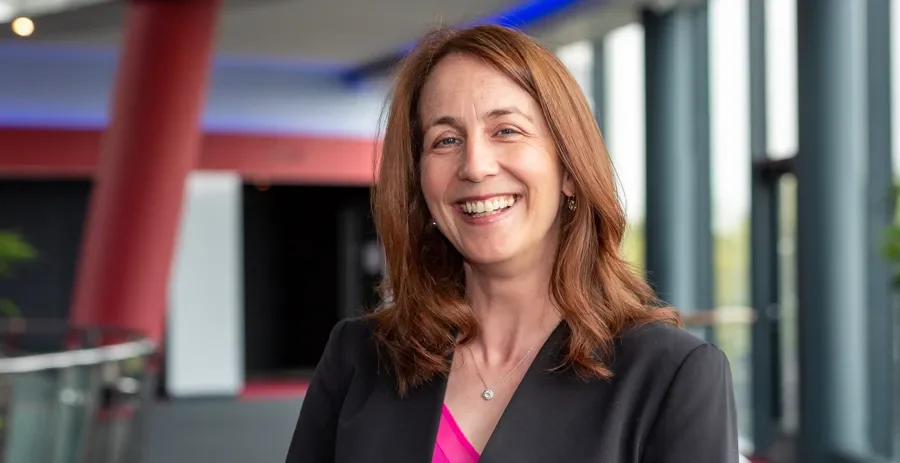

Spotlight on Research: How to boost language learning
This week’s Spotlight on Research is with Dr Jennifer Bruen, Associate Dean for Teaching and Learning in the Faculty of Humanities and Social Sciences, and an Associate Professor in SALIS.
You are a researcher at SALIS, what is that?
“SALIS is the School of Applied Language and Intercultural Studies. We are a research-intensive school with our own well-established degrees. Our French, German, Spanish, Chinese and Japanese modules are also integral parts of degrees in other faculties. My own research is in applied linguistics and investigates how people learn languages.”
What aspects of language learning interest you?
“At the moment, I’m studying how learners can draw on their linguistic repertoire, which is made up of all of the languages they already speak even a few words of, when they are learning a new language. This repertoire is also a resource we can draw upon when teaching languages. Suppose we wanted to introduce a new grammar point in German, we can compare how it works in other languages the student speaks and build upon what they already know. I’m also looking at the issues that arise when we teach content, such as economics, politics or education theory through a language that is not the student’s first language, and at language learning strategies which are the specific actions we take when we are learning a language.”
Can you give us an example?
“In a lot of cases, a person learning a new language will read a lot in that language. We are looking at what exactly people do when they read for example Chinese, Japanese, German or Spanish as beginner learners. If we have a deeper understanding of the reading process, we can better support the language learner. We have a research team in SALIS who work on eye-tracking, and I am planning to work with them to investigate eye movement over a foreign language text by language learners.”
Why is it good to learn more languages?
“In Ireland, we learn Irish and English in our schools but our foreign language capacity is relatively low. It is essential for our social, cultural and economic development as a country that we encourage more language learning. Research shows that people who speak more languages tend to be more creative, open-minded, flexible and better at communicating and problem-solving than those who are monolingual.”
How can your research and policy help to boost language education?
“My research aims to deliver a deeper understanding of how best to teach and learn languages which would put us in a better position to develop strategies and policies that will increase language capacity not just in Ireland but across Europe. Our research and expertise in SALIS has already been drawn upon by the Department of Education and Skills in the reform of the Junior Certificate Modern Foreign Languages Syllabus and the development of a National Languages Strategy for Ireland, and by the Council of Europe in the development of a European plan.”
What is your advice for anyone starting to learn a new language?
“Don’t focus on being perfect when you are a beginner, focus on being understood. You will make mistakes, but you can learn from them. Take a risk!”
What does your work as Associate Dean for Teaching and Learning in the Faculty of Humanities and Social Sciences involve?
“It’s very diverse and varied, there’s a huge amount to it. I’m responsible for overseeing the development and delivery of all the programmes in the Faculty, that’s more than 40 degrees in seven schools on three campuses. Humanities and Social Sciences is a great faculty to work in though.”
How do you take a break from work?
“Well, like many parents I am a taxi-driver for my children and spend a lot of time standing at the side of sports pitches and stadiums. The advantage to that is that it gets me out of the office and into the fresh air. I often catch up on paperwork at night then, so it’s busy, but it’s good!”
